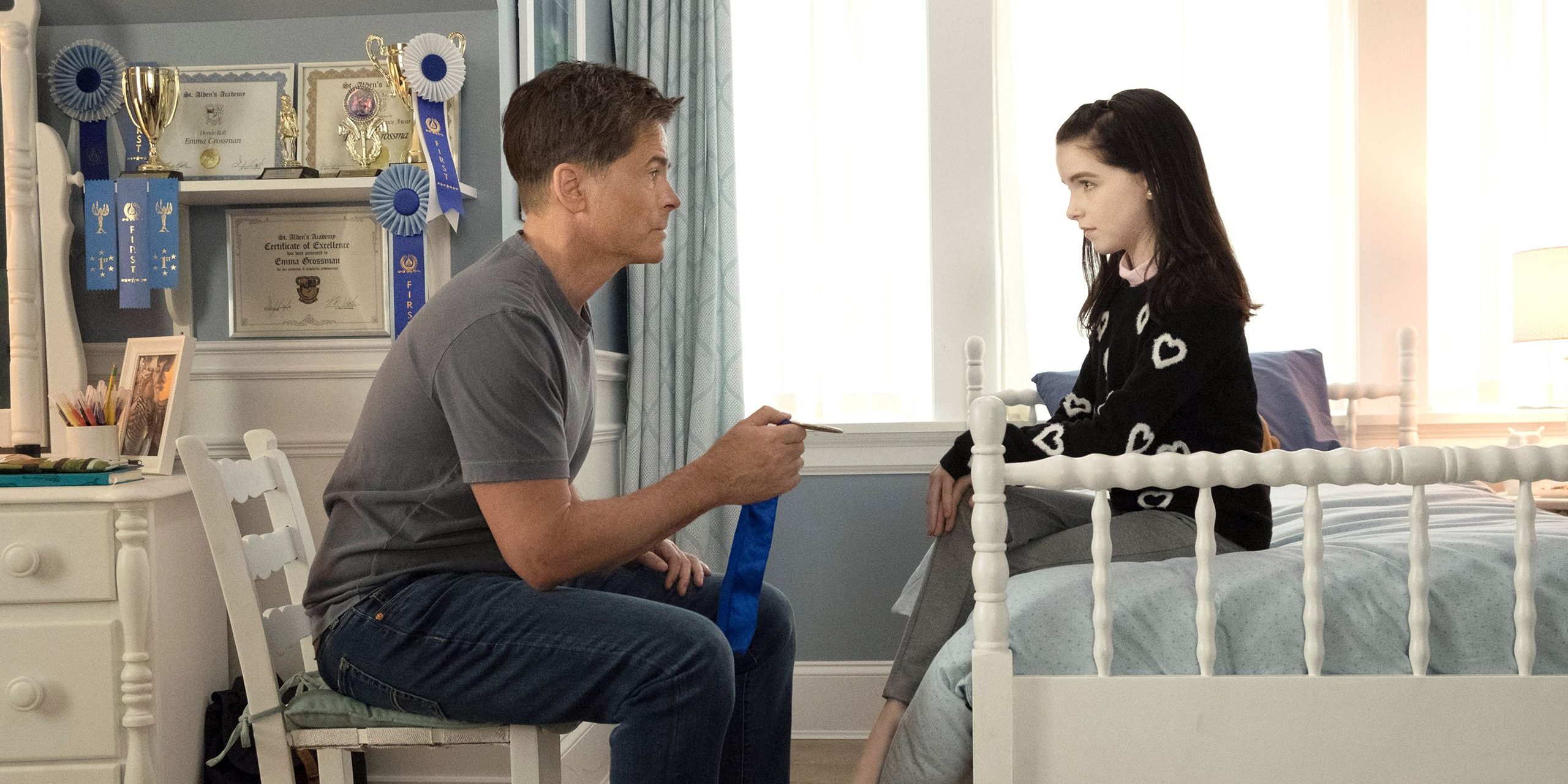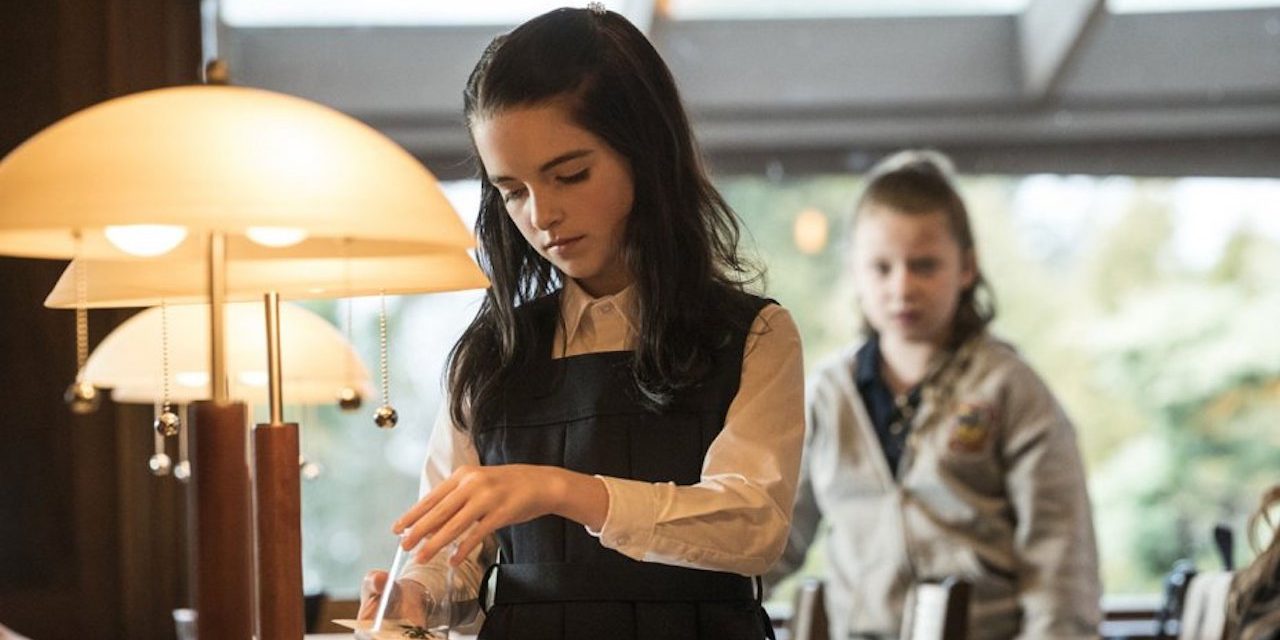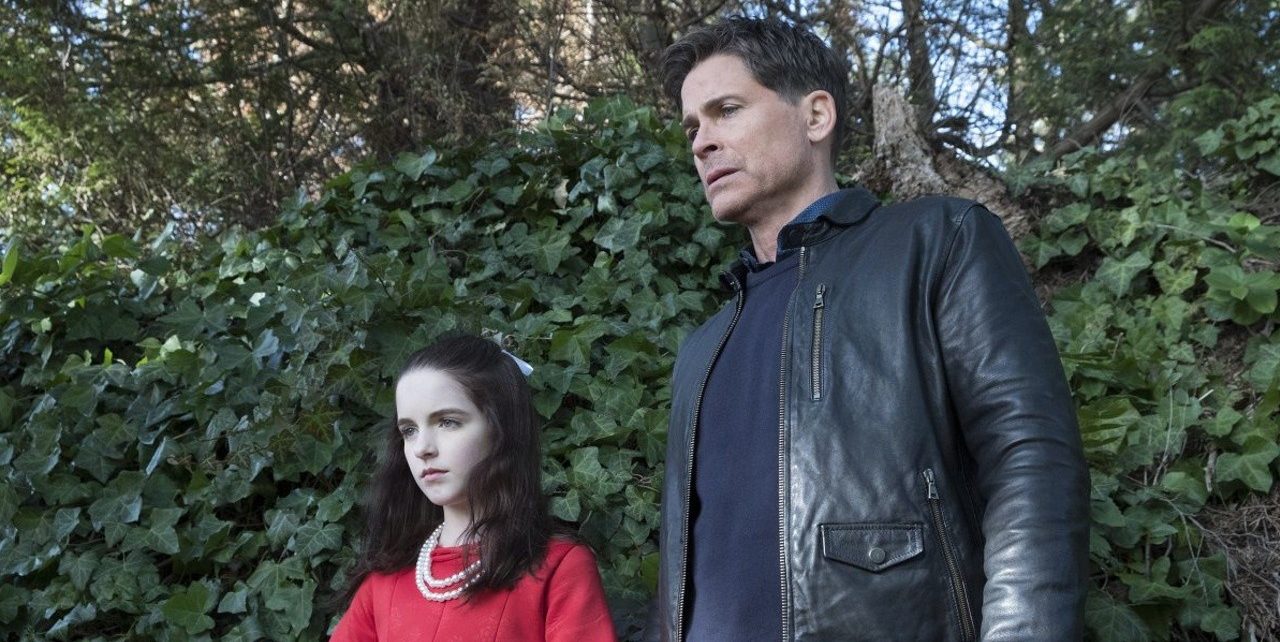In Lifetime’s psychological thriller ‘The Bad Seed,’ David Grossman, a devoted single father, begins to suspect his seemingly perfect daughter, Emma, may be a psychopath after a tragic incident at her school. Despite seeking psychiatric help for Emma, strange occurrences continue, all pointing back to her. He is forced to confront the possibility that his daughter was involved in a classmate’s death, prompting him to question everything he believed about her. Now, David must decide whether to protect his only child or intervene to prevent further tragedies. The Rob Lowe directorial explores dark psychological and moral themes, specifically focusing on childhood innocence, parental responsibility, and the nature of evil, and delves into emotional and ethical ideas. SPOILERS AHEAD.
The Bad Seed is a Timeless Fictional Tale That Has Real-Life Parallels
Though the film features a fictional story, it is based on the intricacies of the father-daughter relationship. The writer Barbara Marshall based her script for ‘The Bad Seed’ on the eponymous novel by William March and was also influenced by John Lee Mahin’s screenplay for the 1956 film of the same name. The eponymous play written by Maxwell Anderson also served as an inspiration. The concept of a murderous kid makes the tale an interesting modern take on the classic novel, especially given the fact that the field of psychology has developed in leaps and bounds.

The World Health Organization reported that youth themselves are the primary perpetrators in approximately 200,000 homicides annually among individuals aged 10 to 29. For many young people, the traditional pathways governing relationships and transitions between family, school, and work are undergoing challenges, resulting in more varied and less predictable lifestyle trajectories. History recounts several chilling instances of heinous crimes perpetrated by children. In 1993, young friends Jon Venables and Robert Thompson, both aged 10, became convicted murderers after the abduction and fatal beating of a toddler. Another case involves 11-year-old Mary Bell, who reportedly lured multiple children into the woods and strangled them to death. She received a murder sentence in 1968 and was released in 1980.
Actor Rob Lowe, the director of the film, in an Entertainment Tonight interview, described the original film adaptation as setting a new standard for thrillers featuring children. He opined that the original novel pioneered the concept of the evil child, and it was the inception of other films like ‘The Exorcist’ and ‘The Omen.’ In another interview with Extra, Rob Lowe stated that he switched the parents’ gender from the original film adaptation from a mother to a father in his take on the tale to make it more relevant for modern audiences. The father-daughter relationship is the emotional core that connects the film to real emotions in myriad ways.
What The Film Gets Right on the Reality of Child Killers and Their Psychology
The psychological thriller dramatizes and exaggerates certain elements due to cinematic liberty. However, it genuinely reflects certain realities and touches upon real psychological traits observed in child killers and children with severe behavioral disorders. The protagonist, Emma, exhibits behaviors commonly associated with dangerous children, including a lack of empathy, manipulation, deception, and cruelty. In an interview with Collider, McKenna Grace revealed some interesting details about her work in the film.

While talking about Patty McCormack, who played the killer child in the original film adaptation, she said, “I talked with Patty McCormack, who played the original, to see how she got prepared, and I talked to her about how Emma, or Rhoda, would act. And then, I just tried to incorporate the little things she did in the original film, like the way she skips or the faces she made. There was this one that I wanted to incorporate so bad, because she like took her hands and cupped them, and it was so weird.” McKenna’s views prove that she wanted to be as authentic as possible in portraying the dangerous role. It wasn’t a performance based on randomness, and she presumably studied the real-life accounts of convicted killers to add realism to her take on the character.


